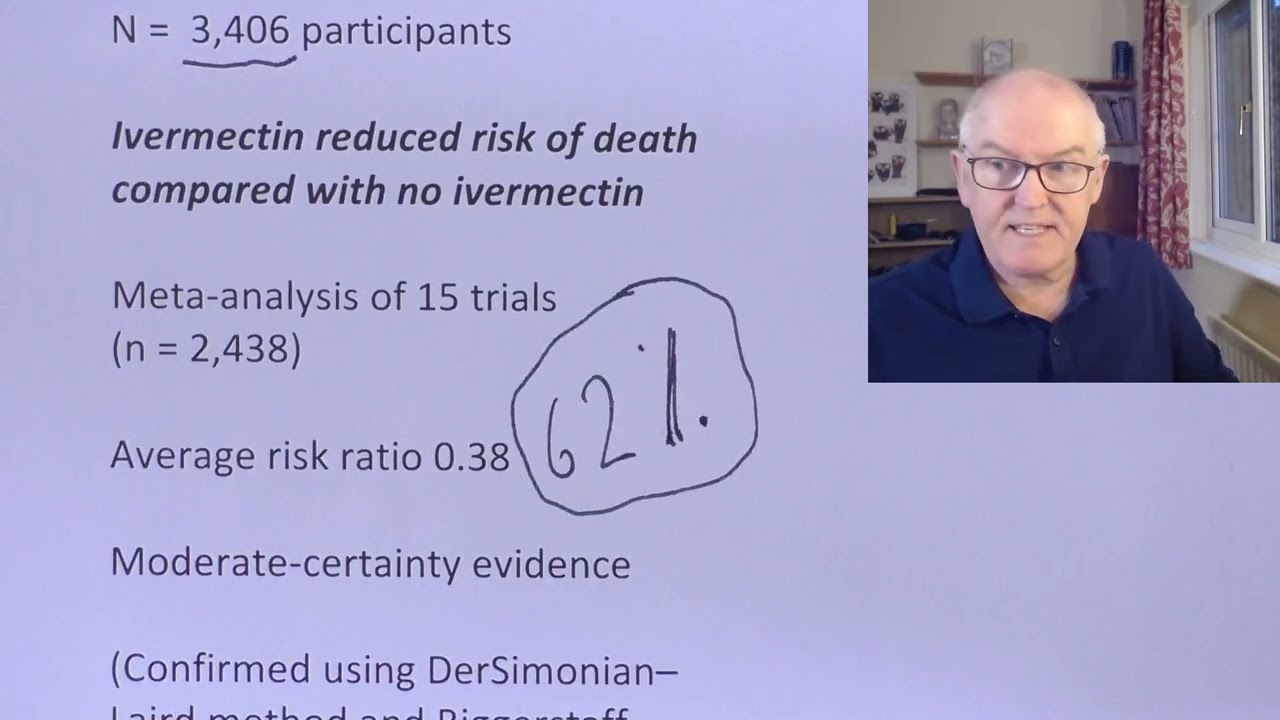Ivermectin for Prevention and Treatment of COVID-19 Infection
A Systematic Review, Meta-analysis, and Trial Sequential Analysis to Inform Clinical Guidelines
https://journals.lww.com/americantherapeutics/Abstract/9000/Ivermectin_for_Prevention_and_Treatment_of.98040.aspx
Background
The antiparasitic ivermectin, with antiviral and anti-inflammatory properties, has now been tested in numerous clinical trials.
A 2018 application for ivermectin use for scabies gives a direct cost of $2.90 for 100 12-mg tablets.
Most trials were registered, self-funded, and undertaken by clinicians
We assessed
Efficacy of ivermectin treatment in reducing mortality
Chemoprophylaxis
Data sources
Databases up to April 25, 2021
Sifted for studies, extracted data, and assessed risk of bias
Meta-analyses were conducted and certainty of the evidence was assessed
GRADE approach
https://training.cochrane.org/grade-approach
GRADE (Grading of Recommendations, Assessment, Development and Evaluations)
Reproducible and transparent framework for grading certainty in evidence
100 organisations worldwide officially endorsing GRADE
GRADE has four levels of evidence, certainty in evidence
very low
low
moderate
high
Decreasing confidence
Risk of bias
Imprecision
Inconsistency
Indirectness
Publication bias
Increases confidence
Very large magnitude of effect
Clear dose-response gradient
Residual confounding is likely to decrease rather than increase the magnitude of effect
Data sources
24 randomized controlled trials
N = 3,406 participants
Ivermectin reduced risk of death compared with no ivermectin
Meta-analysis of 15 trials (n = 2,438)
Average risk ratio 0.38
Moderate-certainty evidence
(Confirmed using DerSimonian–Laird method and Biggerstaff–Tweedie method)
Ivermectin verses no ivermectin in hospital patients
Ivermectin, 2.3%
No ivermectin, 7.8%
Ivermectin prophylaxis reduced COVID-19 infection
3 trials, n = 738
Average reduction 86%
Low-certainty evidence
(due to study design limitations and few included trials)
Clearly favored ivermectin use
improvement
deterioration
Severe adverse events
Rare among treatment trials
Evidence of no difference was assessed as low certainty
Conclusions
Moderate-certainty evidence finds that large reductions in COVID-19 deaths are possible using ivermectin.
Using ivermectin early in the clinical course may reduce numbers progressing
to severe disease.
The apparent safety and low cost suggest that ivermectin is likely to have a significant impact on the SARS-CoV-2 pandemic globally.
Current NIH recommendations
https://www.covid19treatmentguidelines.nih.gov/therapies/antiviral-therapy/ivermectin/
there are insufficient data to recommend either for or against the use of ivermectin for the treatment of COVID-19
The sample size of most of the trials was small
Various doses and schedules of ivermectin were used
Some of the randomized controlled trials were open-label
Patients received various concomitant (confounding) medications (e.g., doxycycline, hydroxychloroquine, azithromycin, zinc, corticosteroids)
The severity of COVID-19 in the study participants was not always well described
The study outcome measures were not always clearly defined
Ivermectin for preventing and treating COVID‐19 (April, 2021)
https://www.cochranelibrary.com/cdsr/doi/10.1002/14651858.CD015017/full?highlightAbstract=ivermectin%7Ccovid
Source
